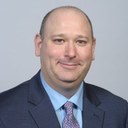Do Health Professions Faculty Need Training in How to be Better Educators?
Dr. Rabalais: As UofL faculty in the health professions of medicine, nursing, dentistry, and public health, we generally were not specifically trained to be educators. Undoubtedly, we watched and now emulate our teachers we experienced in our training, but have we ever been instructed in how best to reach learners, to make learning durable, and to help them become self-directed learners? Learning science has advanced dramatically over the past 30 years. We know how learning works, what doesn't work, and how quickly we forget material to which we have been passively exposed. Should we be using teaching techniques that are now 30 years out-of-date? What can we do to fill our knowledge gap in learning science?
We invited Dr. Russ Farmer, Associate Professor of Surgery and Assistant Dean for Clinical Skills at the School of Medicine, and Medical Director of the Paris Simulation Center, to provide his perspective on the important question raised in the title of this blog post. Here is what he had to say:

Dr. Farmer: The term "doctor" is common among those with terminal degrees and faculty positions at any institution of higher learning. The word "doctor" has its roots in the proto-French "docere" meaning to educate with the purpose of demonstration or passing on a skill. This etymologic heritage is preserved across our campuses by many master educators and clinicians. The University of Louisville enjoys a prominent role as a top tier institution for learning the art and craft of medicine. Despite this history and excellence, we have to admit something fundamental about how we teach people to become autonomous, caring doctors for their communities: Having a terminal health professions degree (MD, DMD, PhD) doesn't mean you have the skills to be a good teacher.
I want to endorse the creation of the Master of Science degree focused on Health Professions Education at the University of Louisville, a collaboration between the School of Medicine and the College of Education and Human Development. I have worked at many levels of health education at the University of Louisville. Since beginning my internship in 2007, I have served as a member of every single educational community the University of Louisville School of Medicine has to offer: UME/GME/CME. I have completed the Certificate Program in Health Professions Education offered at the School of Medicine, a four-course, 12-hour certificate that would count toward the Master's Degree. It is based on these experiences that I wholeheartedly support the development of our faculty with relation to Teaching in the Health Professions.
For Undergraduate Medical Education / Medical School – I have taught students from my first day as an intern. I have been honored to continue as a medical educator with medical students, now serving as the Assistant Dean for Clinical Skills in the Medical School. A consistent theme noticed in students' comments remains how the clinical educators, our attending physicians, are excellent role models and people. Our students are often in awe of the physicians they work beside.
However, our clinicians face increased pressure daily for patient turnover, billing, and the financial viability of U of L Health as a clinical entity. This leaves less time for the dedicated mentorship and apprentice-style teaching, on which modern clinical education was founded. The time with our learners is precious and needs to have maximum impact. We must maximize our teaching medical staff's professional development to ensure our learners can develop the skills necessary to save lives. While I acknowledge that every faculty member will not pursue the Certificate Program in Health Professions Education or the Masters in Health Professions degree, these programs will create champions in the world of health professions education – those that can bring modern education science and methods to all the clinical departments of a system initially designed as an educational entity.
For Graduate Medical Education / Residents and Fellows – I have been both a learner and instructor. The University of Louisville has long been considered a desirable place to learn the art and craft of medicine. The strong relationships developed at the GME level at U of L, our commitment to excellence, and our history of developing autonomous, capable clinicians have led to our continued success as a regional and national leader in Health Professions Education. Sadly, these will no longer be enough to continue this legacy. Premier universities around the country routinely employ, at minimum, multiple faculty members as trained clinician educators to help shepherd the clinical education of residents. At the same time, these Master Educators improve the quality of faculty development opportunities for the entire faculty staff, regardless of their experience or formal educational training.
I also serve on the University's CME committee, helping to oversee and approve educational activities offered certification by U of L. This body would be bolstered by the addition of members with an MSHPEallowing for higher scrutiny of programs. We could offer educational support to programs with needed improvement, thereby expanding our offerings as a CME accreditor and ultimately increasing both our visibility and revenue stream from this arena.

Lastly, practically speaking, there are those faculty out there who are desperate to develop themselves as educators. Most will not seek accessory degrees as an educator. Some will. It is these people our University MUST serve. If they cannot obtain this degree from U of L, they will seek it elsewhere. For so many reasons, our faculty deserve the chance to earn this degree at home. The most important may be this one – creating a dedicated cadre of Master Educators with knowledge of our institution, the desire to see it improve, the impetus and will to do so, and the relationships to make it happen.
In closing, I will invoke Margaret Mead - "Never doubt that a small group of thoughtful committed individuals can change the world. In fact, it's the only thing that ever has." Facilitating the creation of an MS in Health Professions Education at a minimum will allow a group of our faculty to get the additional training they desire, but it might also change the world of our Health Sciences Center as we know it.
My sincerest thanks for all you do. I am honored and humbled to be a member of this University.